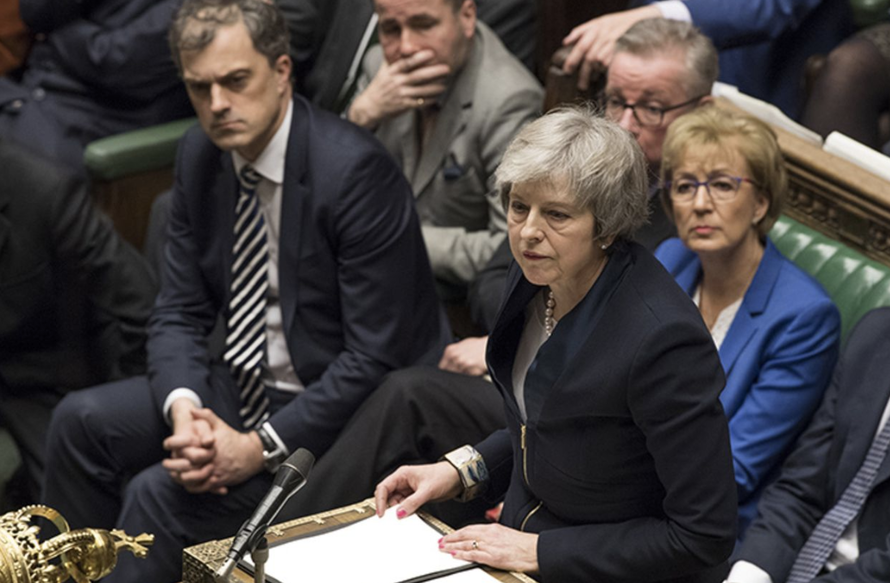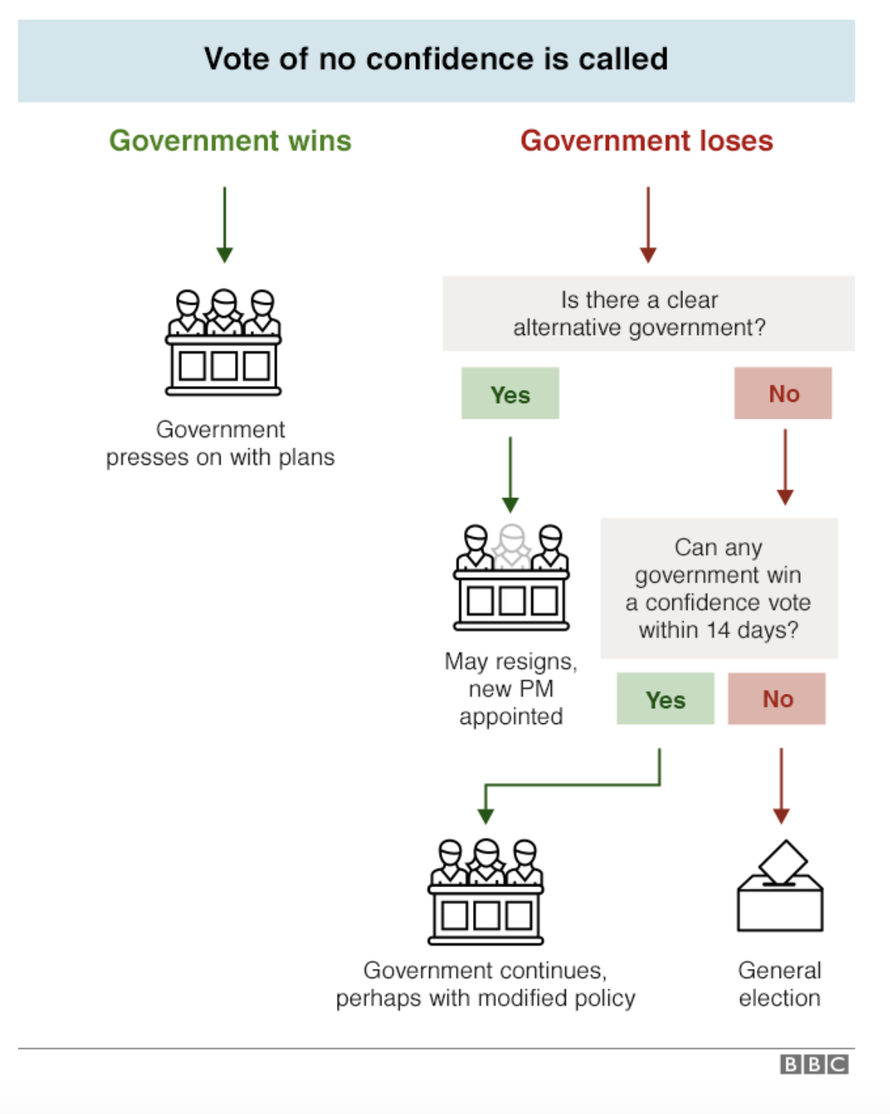By all accounts, a historic defeat like the one suffered by Prime Minister Theresa May Tuesday night when the Commons overwhelmingly rejected her Brexit withdrawal agreement by a margin of roughly 230 votes, would have prompted a British leader to resign in disgrace. But these are not normal times.
Instead, May has vowed to press ahead with another round of negotiations, pledging to reach across party lines to try and hammer out a deal that would have a chance of winning approval in the Commons. However, even if she is successful, it’s still unclear whether the EU27 leaders would accept it. After the vote, EU Chief negotiator Michel Barnier told the EU Parliament that the likelihood of a chaotic no-deal Brexit was “higher than ever” (though he hinted that a compromise could be reached if May would budge on some of her ‘red lines’ – like the size of any future payments made by Britain to the EU, or its restrictions on immigration, or membership in the customs union or single market), according to RT.
French Leader Emmanuel Macron and a handful of other European leaders were slightly less forgiving: Macron has said that the EU has “reached the maximum” of what it can offer the UK and will not sacrifice European interests to help the UK resolve its internal squabbles, RT said.
Analysts and members of Parliament reportedly now expect Article 50 to be delayed (though that hasn’t yet emerged as the official position of May’s government or the DUP, the tiny Irish party propping up her government), the path forward is looking increasingly unclear.
And to add one more layer of complication, May is expected to face another vote of no confidence on Wednesday. But this time, the motion has been tabled in Parliament by the Labour Party. A loss could open the door to another general election, which would inject a fresh helping of chaos into the Brexit process.
Courtesy of the BBC
Though Tories widely expect May to prevail, with the DUP in her corner, May’s margin, according to Bloomberg, is just 13 votes (assuming all of the DUP backs her during the vote, which the party’s leadership said they would). With this in mind, it’s hardly surprising that Bloomberg described the vote as the British government’s “most dangerous crossroads in decades”.
Here’s what would happen if May loses, according to the New York Times.
If a majority of Parliament votes on Wednesday that they have no confidence in the government, Mrs. May would have 14 days to win back the support of lawmakers. Without that, an early general election would be triggered. (The no-confidence vote on Mrs. May’s government differs from a vote she faced in December, when members of her own Conservative Party tried to unseat her as party leader. She survived that vote, 200 to 117.)
If the no-confidence measure passes, the opposition could take power. But Mr. Corbyn is unlikely to have enough votes for the measure to pass, a reality that Labour politicians have themselves admitted.
Labour is going into the vote expecting to lose. But winning isn’t the point, as Barry Gardiner, a Labour member of Parliament, explained during an interview with the BBC.
“It’s not about a one off thing…what the public will be looking at is this is a historic defeat…and they will be saying in that circumstance if a government can’t govern, surely they should resign.”
Making things even more awkward, May is facing pressure to invite her arch-nemesis to negotiate. Jeremy Corbyn has already refused her offer, but it’s still possible that May will end up negotiating with senior Labour leaders to see whether there’s anything she can do to win their support.
Meanwhile, dozens of Labour MPs are pushing for a second referendum, something May has repeatedly refused to consider.
“The time is now to pivot to support a public vote on whether we should accept the deal or remain in the EU,” said Mike Buckley, director of Labour for a People’s Vote. “If Labour doesn’t shift its position, pro-EU lawmakers in the party are planning to propose their own amendment to the next Brexit vote.”
The possibility that Brexit could be canceled has gotten currency strategists excited, with an analyst at Makor Capital Markets warning that the odds of a no Brexit scenario have “dramatically increased.”
“A most uncertain outcome though (both in the immediate future and down the road) and that may be the rationale behind GBP’s impressive resilience after a short-lived fall in the immediate aftermath of the vote,” wrote Stephane Barbier de la Serre, Macro Strategist for Makor Capital Markets. “But another much more fundamental reason could be that the odds of a second referendum have now objectively dramatically increased. Arguably, we may not go there in a straight line but, mutatis mutandis, keep buying dips on GBP and British domestic companies with a domestic bias.”
Of course, the EU27 would like nothing more than to see Brexit cancelled (it would deal a serious blow to the rising tide of populism that has so alarmed Brussels). By now, many suspect that, if the choice is between no Brexit and no deal, there would likely be more support in Parliament for the former.
With this in mind, what incentive does the EU have to accommodate May?
via RSS http://bit.ly/2AIjZMX Tyler Durden

